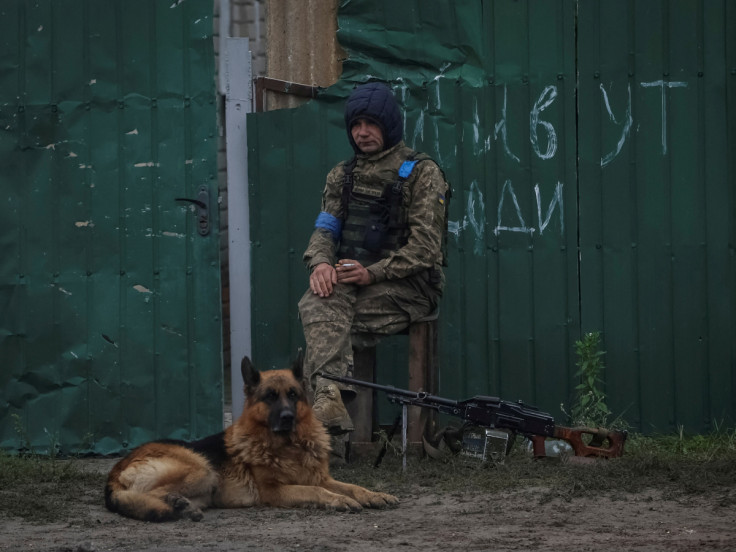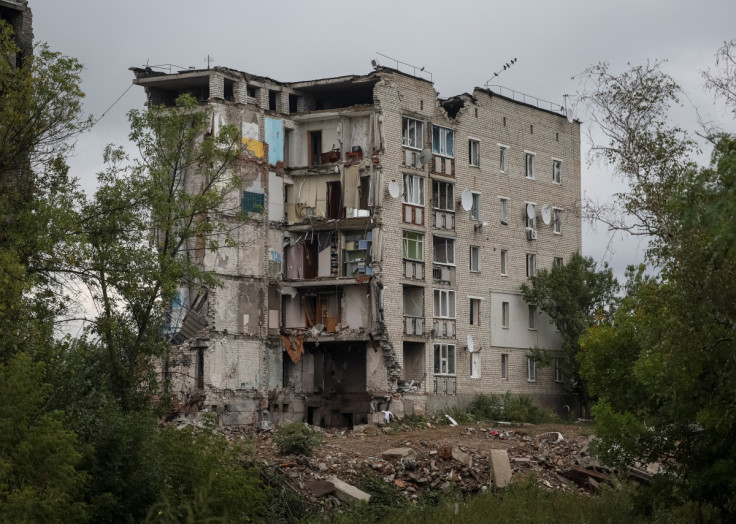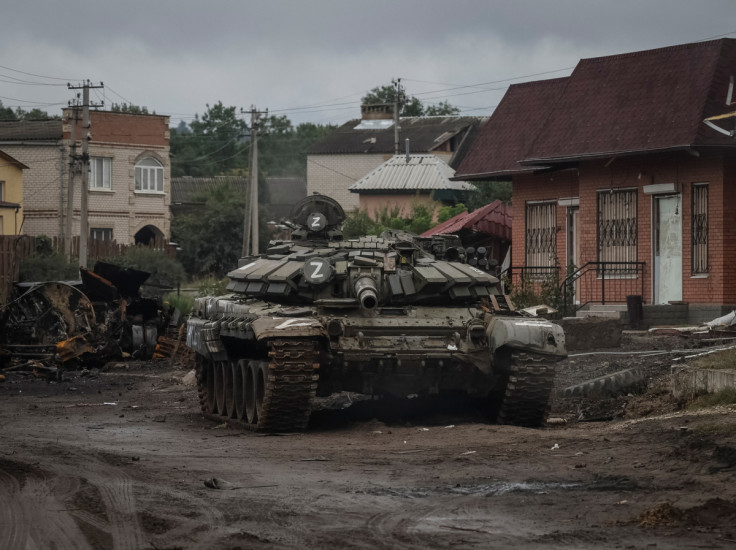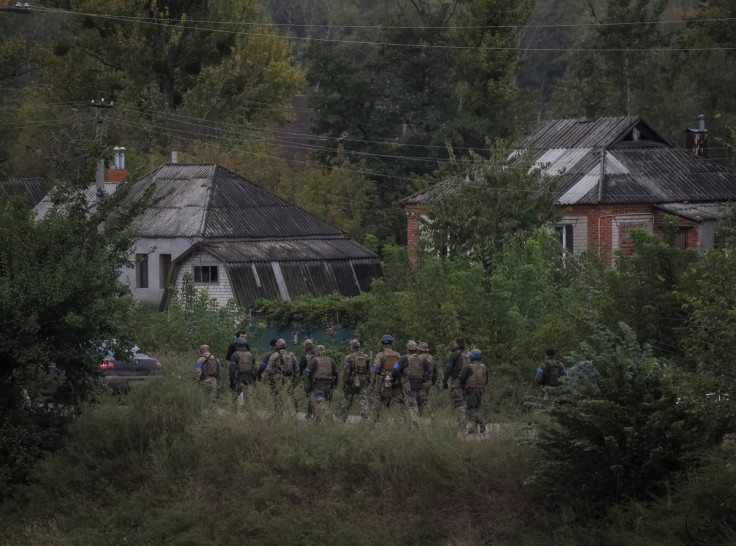'It's Survival': Fear Lingers In The Ruins Of Ukraine's Liberated Izium

Across a damaged footbridge over the river Siverskyi Donets, shrapnel-sprayed walls and charred Soviet-era housing stand in a panorama of provincial devastation in Ukraine's liberated town of Izium.
Exhausted residents said they were elated by the end of six months of Russian occupation delivered by Ukraine's counter-attack last week, but voiced grave fears at a winter of looming energy shortages - and the lingering threat from Russia.
"We lived through this (for) six months. We sat it out in cellars. We went through everything it is possible to go through. We absolutely cannot say we feel safe," Liubov Sinna, 74, told Reuters on Wednesday.
Izium, a town of 50,000 before the war, became a strategic supply hub for one of Russia's principal front lines in its invasion and sustained an extraordinary amount of damage that has made normal life a struggle for residents.
Smashed windows, pock-marked facades and scorched walls lined a battle-scarred main thoroughfare comprised of deserted meat shops and pharmacies and ruined beauty salons. A forlorn handwritten sign on a front door read: 'People live here.'
"It's survival. There's no light, no gas, no water. We make bonfires to cook. That's how we live," said Bohdan Solomko, 43, walking home with his wife Oksana and their three children.
"Most important is the kids are alive," he said.
Residents described a hellish six months since they first took shelter in the basements of apartment blocks in early March, just days after Russia launched its invasion. They made fires to keep warm from the bitter cold and fetched pails of water from wells.
There were no available figures for the number of people left but the population had evidently plunged. Stray dogs - perhaps abandoned by fleeing owners - scampered around in the destruction.
Few buildings were unscathed on a parade of shops leading to the main square where President Volodymyr Zelenskiy oversaw a ceremony to raise the Ukrainian flag on Wednesday.
Thousands of Russian troops fled Izium at the weekend, leaving behind large amounts of ammunition and equipment, their worst defeat since they were driven back from the outskirts of Kyiv in March.
Anton Gerashchenko, an aide to the interior minister, said authorities were only now beginning to launch investigations and were unable to provide figures for civilian loss of life in the town. "We're only just beginning."
'GATES OF THE DONBAS'
On the road to Izium, bus stops were daubed with "Z" markings, the symbol Russian forces use to identify themselves, and the charred remains of tanks and armoured personnel carriers lay by the road side.
The discarded wrappers of Russian army food rations were littered on the ground at a checkpoint now held by Ukrainian troops on the way into the town.
"We waited a long time for our guys. Of course we feel positive. (It's) joy. But there is also fear - fear that the Russians could return here," Sinna said.
She said the town stood at the "gates of the Donbas", the eastern region whose entire capture Russian President Vladimir Putin has talked up as a key war objective.
But there had been a lot of deserters among the Russian forces in the town, said Sinna.
"They went away in groups, through the pedestrian bridge to get to Kupiansk. They changed into civilian clothes and went. Most of them left in the night between Sept. 8 and 9. On the tenth, we knew the city was free," she said.
The fall of Izium is widely seen as a major setback for Moscow's assault on the Donetsk region, which along with Luhansk makes up the Donbas. Parts of the area are controlled by Russia and separatists it backs, but swathes remain in Ukrainian hands.
Solomko, whose hands were filthy from cooking over an open fire, said he was undaunted.
"We're not afraid any more, we've got used to it. You can't explain it in a few words. You'd have to put my coat on and walk around here for a bit," he said.
Oksana said: "The children say they can breathe easier and the fear has passed." The Russians had constantly stopped the family to check their papers, she said.
Sinna said her apartment block had been shelled heavily, but unlike some others could be rebuilt.
"It stands at a crossroads, so we were hit by all possible types of shelling. The most frightening were the planes - that's how the bombardment started."
She criticized the town's mayor who she said had been among the first to abandon the town, leaving behind its inhabitants to face the Russian occupation. Reuters was unable to independently verify the details of what happened in Izium.
"They didn't prepare the city, they didn't check the bomb shelters," said Sinna. "People hid in basements, which could fall in at any moment. There was no actual evacuation. People were abandoned. We didn't know what to do."




© Copyright Thomson Reuters 2024. All rights reserved.











